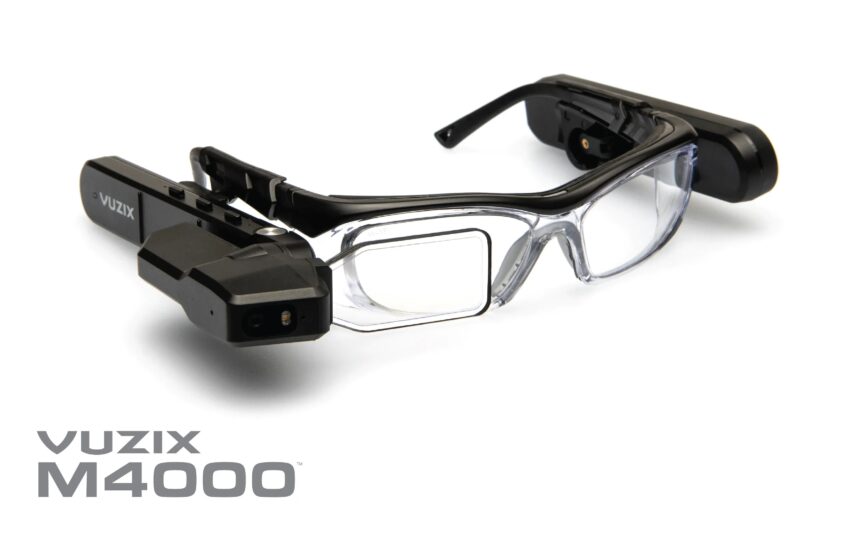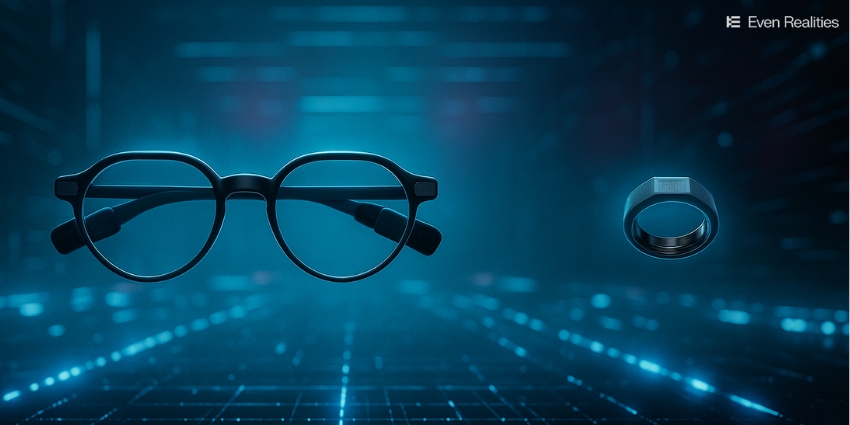XR Today interviewed Professor Shafi Ahmed, Chief Executive, Medical Realities, to discuss the utility and value of Vuzix’s smart glasses in the operating room.
Professor Ahmed serves as a world-renowned cancer surgeon at The Royal London Hospital. Some of his top accolades include the Future NHS and Asian Star in UK Tech awards in 2018. He has also been shortlisted for a BAFTA award in 2019 and received the Best Trainer in Surgery prize, the Silver Scalpel Award, in 2015.

His VR education firm has also instructed countless learners in the operating room, and he was nominated for a Nobel Peace Prize in 2020 for his work in conflict zones and educating global communities in surgery.
Regarding his work in telesurgery, remote learning, and remote training since 2014, Prof Ahmed has collaborated with immersive firms and augmented reality (AR) smart glass makers. This has led to him performing the world’s first global operation live stream, where an audience of 14,000 students in 118 countries observed for their training.
Prof Ahmed has also collaborated with Vuzix over the last decade, allowing him to train thousands of students across the world. Afterwards, work with smart glass firm Rods and Cones continued his remote collaboration experience with Vuzix devices.
He explained that, due to the COVID-19 pandemic, his company had seen a “huge interest in how we train people on a global level because we’re now more remote and with access to more remote learning technologies.”
XR Today: What were the strengths and weaknesses of using VUZIX’s M400 and M4000 solutions?
Prof Shafi Ahmed: Overall, Vuzix’s M400 smart glasses were really impressive in how they’ve come over the last eight to nine years. What they offer is a wide field of view (FoV) and excellent glass transparency for surgeries, allowing medical professionals to avoid disruptions while performing their operations. It’s a massive difference.
The 4K resolution is also impressive for streaming video, and the smart glasses have loud audio, offer noise cancellation, and can be heard in the operating theatre.
So to exploit the power, one should ask, ‘What would smart glasses look like in the operating theatre? What issues have we previously had, and how do we correct them?’
Overall, Vuzix has answered a lot of questions concerning the limitations of smart glass technologies. I think this bears on how its users can access it much quicker and faster, or for example, set up the device in environments. The whole kind of platform that we’ve designed should be as intuitive as possible.
Of course, there’s still a lot of work to do in terms of connectivity and live streaming quickly for longer periods of time. However, I’m pleased to say that most of these issues I had when first starting have now thankfully been resolved.
XR Today: How does Vuzix facilitate surgeries with AR smart glasses, and which key data do their devices supply during these procedures?
Prof Shafi Ahmed: Working with Vuzix has been really transformational as they understand the requirements of the operating theatre. This means things like consent, governance, tactics, and other issues. Vuzix also complies with Health Insurance Portability and Accountability Act (HIPAA) regulations and General Data Protection Regulations (GDPR). They understand the technical requirements to ensure patient safety at all costs, which is really important to a company.
They also extend their expertise before and after procedures. This is incredible because these new technologies need to be nurtured. However, when first introduced to new department or for operations, this requires some technical expertise, which they offer both remotely and on-site.
 If things also go wrong or you have issues, that is absolutely useful to have in real time. From my perspective, this provides clarity. We get 4K views of an operation, streamed to the audience trained and taught remotely, and can zoom in to look at human structures. Surgeons can do this while annotating on the platform, allowing you to remotely create teaching experiences in the OR using the AR smart glasses.
If things also go wrong or you have issues, that is absolutely useful to have in real time. From my perspective, this provides clarity. We get 4K views of an operation, streamed to the audience trained and taught remotely, and can zoom in to look at human structures. Surgeons can do this while annotating on the platform, allowing you to remotely create teaching experiences in the OR using the AR smart glasses.
Instructors would normally complete this on a Blackboard or PowerPoint presentation. However, Vuzix’s solution can bring all the elements of teaching from online, eLearning, and immersive reality to a single platform.
This is where the surgeon can easily teach learners — in the same room and remotely. I think that this is very transformational in the world of surgery.
XR Today: Can you explain further the benefits for patients and students attending live streams?
Prof Shafi Ahmed: The patients I’ve operated on over the last decade, who allowed us to live stream their operations for training purposes, have really enjoyed the experience.
They felt they were supporting our services around the world to improve standards. I haven’t come across a single patient who hasn’t said, “Yes, I’m happy for you to share the knowledge that you have whilst operating on me or my family, and showing that on a global level.”
I’m absolutely inspired by my patients, who really understand what we’re trying to do and achieve to improve global standards for surgery. From the student’s perspective, they are much more empowered.
If you go back a few years, when we had a number of medical students, surgeons, and trainers crowded in a room, it wasn’t conducive to good learning. When people near you, such as the first or second assistant, they need to see what’s going on, because it’s important to comment on the operation itself.
However, using smart to stream this to a much wider audience, whether they are students that are nearby or remote, can see the operation up close for the first time and simultaneously.
Despite being remote, I’ve seen what’s going on and can even communicate with the surgical team that I feel a part of the surgical team. For example, to demonstrate these devices’ reach, I remember doing an operation a few years ago, and I got a response from students on the Marianas Islands thanking me for teaching them.
This is a small island in the middle of the Pacific Ocean with roughly 500 inhabitants, and she was being trained from there. That’s the power of connectivity. These glasses make the world a smaller place and allow us all to share our knowledge globally.
XR Today: How does Vuzix facilitate bespoke applications via application programme interfaces (APIs)? Did you need to include software development kits (SDKs) to facilitate surgical processes?
Prof Shafi Ahmed: I recently wrote some code, and our collaboration with Vuzix is very intimate in terms of how we connect our platform, smart glasses, and phones for showcasing the wider picture of the operation field.
I think that, once you start thinking about the bigger picture of what you’re trying to create in your experience for learners, it becomes a quick understanding of where the technology lies and how they can help, support, and add value in terms of what it brings to the table.
Collaboration is much better, wider, and more advanced than buying smart glasses and streaming. It’s also about understanding the fundamentals of what’s required.
In medicine, one must be very careful with data protection, coverage, confidentiality, and consent processes. The technology has to be reliable and robust enough for medical professionals to allow it in the medical field.
Vuzix has stood out from the outside, offering technologies that fully support medical work and training.









